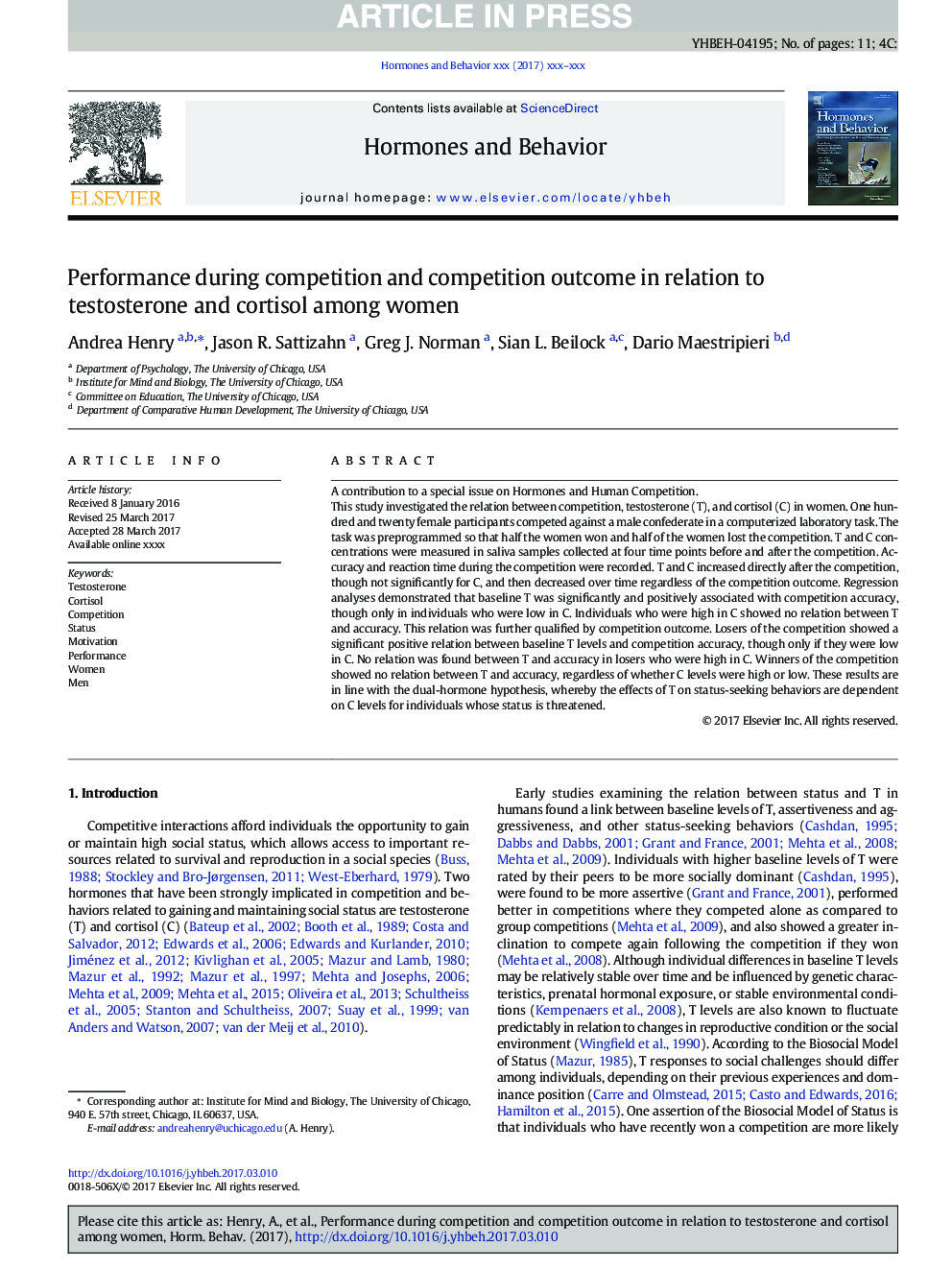| Article ID | Journal | Published Year | Pages | File Type |
|---|---|---|---|---|
| 4931152 | Hormones and Behavior | 2017 | 11 Pages |
Abstract
This study investigated the relation between competition, testosterone (T), and cortisol (C) in women. One hundred and twenty female participants competed against a male confederate in a computerized laboratory task. The task was preprogrammed so that half the women won and half of the women lost the competition. T and C concentrations were measured in saliva samples collected at four time points before and after the competition. Accuracy and reaction time during the competition were recorded. T and C increased directly after the competition, though not significantly for C, and then decreased over time regardless of the competition outcome. Regression analyses demonstrated that baseline T was significantly and positively associated with competition accuracy, though only in individuals who were low in C. Individuals who were high in C showed no relation between T and accuracy. This relation was further qualified by competition outcome. Losers of the competition showed a significant positive relation between baseline T levels and competition accuracy, though only if they were low in C. No relation was found between T and accuracy in losers who were high in C. Winners of the competition showed no relation between T and accuracy, regardless of whether C levels were high or low. These results are in line with the dual-hormone hypothesis, whereby the effects of T on status-seeking behaviors are dependent on C levels for individuals whose status is threatened.
Related Topics
Life Sciences
Biochemistry, Genetics and Molecular Biology
Endocrinology
Authors
Andrea Henry, Jason R. Sattizahn, Greg J. Norman, Sian L. Beilock, Dario Maestripieri,
